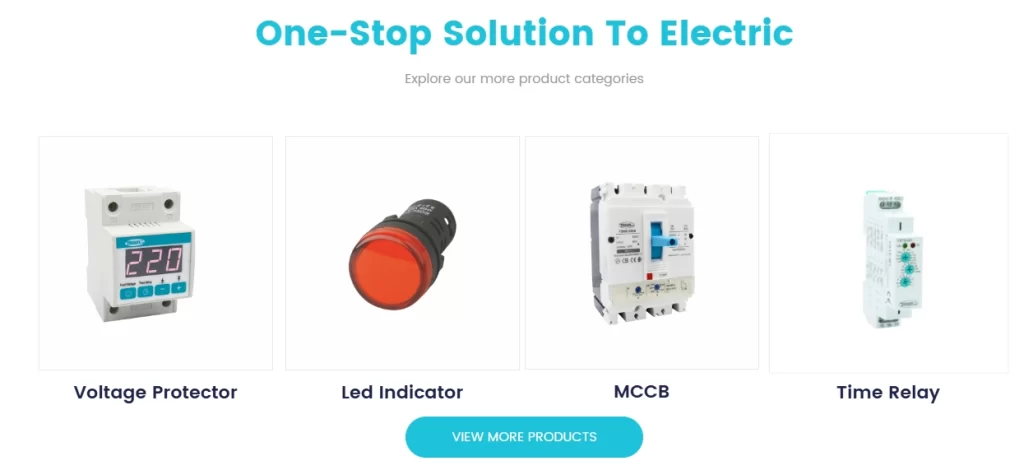Çfarë certifikimesh ndërkombëtare duhet të kenë produktet elektrike me tension të ulët për akses në tregun global?
Tabela e Përmbajtjes
NdryshoLow-voltage electrical products require certifications such as CE, CB Scheme, UL, and VDE to ensure safety and compliance with global trade standards. This not only builds consumer confidence but also ensures regulatory compliance and gives manufacturers the opportunity to expand into new markets.
Why Do Low-Voltage Products Need Certification?
Certifications prove that electrical products meet safety, performance, and quality standards. They protect users from risks such as short circuits, fire, or malfunction. For manufacturers, certifications:
- Ensure compliance with local and international laws.
- Make products more competitive in global markets.
- Build trust with buyers and distributors.
For a broader overview of certification systems, check out 5 Major International Certification Bodies.
CE and UL certifications are essential for safety and global market access.
What Is CE Marking and Why Is It Important?
CE marking is mandatory for all electrical products sold in the European Economic Area. It shows compliance with EU directives for safety and environmental protection. Without CE, products cannot legally enter the European market.
For example, Tosunlux’s CE-certified low-voltage circuit breakers meet EU standards for safety and performance.
Learn more in The Importance of CE, CB, and VDE Standards.

CE marking ensures that low-voltage electrical products meet EU safety and environmental standards.
What Is the CB Scheme?
The CB Scheme, run by the International Electrotechnical Commission (IEC), helps manufacturers gain approval in multiple countries with a single test. Instead of repeating certifications in each country, one CB report can be accepted by many national bodies. This saves both cost and time.
Tosunlux’s modular devices dhe distribution boxes are examples of products that can benefit from CB Scheme approval for multiple market entry.

The CB Scheme simplifies multi-country approval of electrical products.
Why Is UL Certification Important in the U.S.?
UL certification is widely trusted in North America. It confirms that electrical products meet strict U.S. safety standards. For companies targeting the American market, having the UL mark makes it easier to sell products and gain customer confidence.
For example, Tosunlux’s industrial control products are designed with international safety standards in mind, making UL certification an important factor for U.S. distribution.
What Is VDE Certification?

VDE is a German certification that ensures high standards of safety and performance. It is often considered stricter than CE requirements. Products with a VDE mark are highly valued in Europe because of their proven quality and reliability. For example, a manufacturer exporting LED lighting from China to Germany must obtain CE certification to meet EU laws, but securing VDE adds extra credibility and helps win over distributors who demand higher safety assurance.
Are There Other Certifications?
Yes. Depending on the market, manufacturers may also need:
- Electrical certificate of compliance – proof that products follow local safety codes.
- Electrical inspection certificate – confirmation after official testing.

Comparison of key international certification marks (CE, UL, CB, VDE, etc.) for low-voltage electrical products.
Infographic comparing CE, UL, CB, and VDE certifications by region and scope.
For a broader view, see 5 Major International Certification Bodies.
Pyetjet e shpeshta
What is low voltage certification?
It is an approval showing that low-voltage electrical products meet safety and quality standards required in international markets.
Do all countries accept the same certifications?
No. Each country has different requirements, but global marks like CE, UL, and CB are widely recognized.
Which certification should manufacturers get first?
CE marking is often the starting point since it is mandatory in Europe and respected worldwide.
konkluzioni
Low-voltage electrical products must carry recognized certifications to enter global markets. CE, CB Scheme, UL, and VDE are among the most important. By securing the right approvals, manufacturers can ensure product safety, meet regulations, and gain a competitive edge in international trade.
Tel: +86-577-88671000
Email: ceo@tosun.com
Skype: deri në energji elektrike
Wechat: +86-139 6881 9286
WhatsApp: +86-139 0587 7291
Adresa: Dhoma Nr. 1001 Wenzhou Fortune Center, Station Road, Wenzhou, Kinë
KËRKONI NJË KUOT
Na WhatsApp
 : +86-139 0587 7291
: +86-139 0587 7291 anglisht
anglisht Español
Español Русский
Русский Français
Français Arabisht
Arabisht Português në Brazil
Português në Brazil Ukrainas
Ukrainas Türkçe
Türkçe Polski
Polski Hollanda
Hollanda Italiano
Italiano Bahasa Indonesia
Bahasa Indonesia हिन्दी
हिन्दी اردو
اردو አማርኛ
አማርኛ shqip
shqip ไทย
ไทย mongolisht
mongolisht gjuha shqipe
gjuha shqipe Shqip
Shqip English
English



